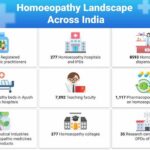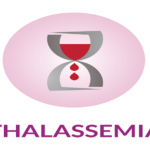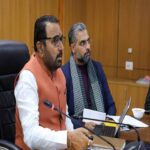healthysoch
New Delhi, July 24, 2019 ;
Rogi Kalyan Samities (RKSs) / Hospital Management Committees were introduced in 2005, as a forum to improve the functioning and service provision in public health facilities, increase participation and enhance accountability.
The broad objectives of the RKS is to serve as a consultative body to enable active citizen participation for the improvement of patient care and welfare in health facilities. The composition of governing body of RKS includes eminent citizens and civil society representatives along with other members. RKS have been empowered to perform social responsibility functions related to welfare of patients and are given corpus grant on annual basis to achieve their objectives. Detailed objectives of RKS are given below:
The following are the broad objectives of the RKS:
- Serve as a consultative body to enable active citizen participation for the improvement of patient care and welfare in health facilities.
- Ensure that essentially no user fees or charges are levied for treatment related to care in pregnancy, delivery, family planning, postpartum period, newborn and care during infancy, or related to childhood malnutrition, national disease control programmes such as Tuberculosis, Malaria, HIV/AIDS, etc. and other government funded programmes which are provided as assurance or service guarantees to those accessing public sector health facilities.
- Decide on the user fee structure for outpatient and inpatient treatment, which should be displayed in a public place and be set at rates which are minimal and do not become financial barrier to accessing healthcare.
- Ensure that those patients who are Below Poverty Line, vulnerable and marginalized groups and other groups as may be decided by the state government, do not incur any financial hardship for their treatment, and create mechanisms to cover part/full costs related to transport, diet, and stay of attendant.
- Develop mechanisms to guard against denial of care to any patient who does not have the ability to pay, especially for services that are being provided at the government’s expense.
- Ensure provision of all non-clinical services and processes such as provisioning of safe drinking water, diet, litter free premises, clean toilets, clean linen, help desks, support for navigation, comfortable, patient waiting halls, security, clear signage systems, and prominent display of Citizens’ Charter,
- Ensure availability of essential drugs and diagnostics, and use of standard treatment protocols/standard operating procedures, patient safety, effective mechanisms for maintaining patient records, periodic review of medical care/deaths,
- The RKS, as a part of the endeavour to enable assured health services to all who seek services in the government health facility will allow the hospital in charge to procure essential drugs/ diagnostics not available in the health facility out of the RKS funds. Such local purchases must be made only as a short term interim measure. The Executive Committee will review such purchases in each meeting and ensure that the rationale for the purchase is justified and that this is not undertaken repeatedly.
- Promote a culture of user-friendly behaviour amongst service providers and hospital staff for improved patient welfare, responsiveness and satisfaction through inter-alia organizing training/ orientation/ sensitisation workshops periodically.
- Operationalize a Grievance Redressal Mechanism including a prominent display of the “Charter of Patient Rights ” in the Health facility and address complaints promptly thus building confidence of people in the public health facilities.
- Create mechanisms for enabling feedback from patients, at least at the time of discharge and take timely and appropriate action on such feedback.
- Undertake special measures to reach the unreached / disadvantaged groups e.g. Campaigns to increase awareness about services available in the facility.
- Ensure overall facility maintenance to ensure that the facility conforms/aspires to conform to the Indian Public Health Standards (IPHS).
- Supervise, maintain, and enable expansion of hospital building for efficient and rational use and management of hospital land and buildings.
- Facilitate the operationalization of National and State Health programmes as appropriate for the level of the facility.
- Proactively seek out participation from charitable and religious institutions, community organisations, corporates for cleanliness and upkeep of the facility.
- Facilitate participation and contribution from the community in cash/kind (drugs/ equipment/diet), labour including free professional services.
Further, the Rogi Kalyan Samiti Guidelines has been revised in 2015 for constitution of RKS in all public health facilities at the level of Primary Health Centre and above and to make the RKS more participatory and accountable.
Out of 33,261 public health facilities of Primary Health Centre level and above, there are 33212 RKS constituted across the country as on 31st March, 2019 as per NHM-MIS.
The guidelines provide for holding regular meetings of RKS along with exercising their financial rights is available at URL: https://nhm.gov.in/index1.php?lang=1
The Minister of State (Health and Family Welfare), ShAshwini Kumar Choubey stated this in a written reply in the Rajya Sabha on July 23, 2019.







